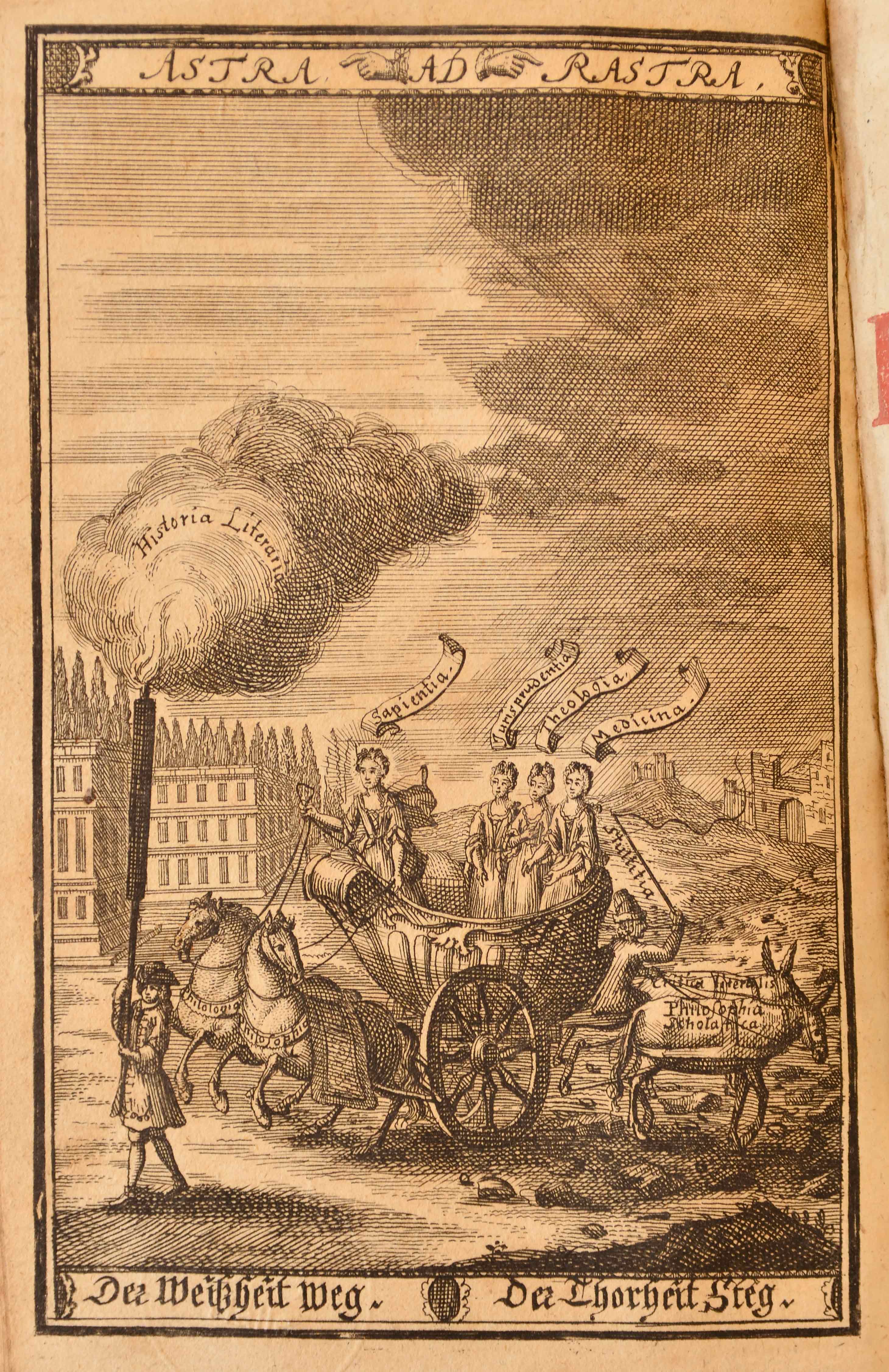Historia Literaria. Organisation, Interpretation, Retention, and Transmission of Knowledge
Project manager: Dr. Frank Grunert
Duration of project: ongoing
Project Description
The Historia literaria – the history of letters – was in the late 17th and throughout the 18th century a prominent and highly successful medium for the organisation, interpretation, retention, and transmission of knowledge.
This is demonstrated both by the numerous compendia on the history of letters as well as by the establishment of Historia literaria as an academic subject. The purpose of the Historia literaria was – as almost unanimously agreed upon in the learned world – the extensive recording of the erudite knowledge acquired by men, and this from its outset to the present.
Christoph August Heumann describes the Historia literaria in this sense, with the virtually classic and for a long time binding formulation “Narratio de ortu et studiorum progressu literariorum ad nostram usque aetatem”.
As part of a long perpetuated self-reflection, which drew its inspiration from the methodological and programmatic aspirations and intentions of this particular era, a variety of histories of letters, different in both form and content, emerged. They were intended as introductions for young students, as reference for scholars or as edifying literature for a not necessarily academic readership interested in learning. Virtually every author of such handbooks justified his own undertaking by claiming the inadequacy of all previous publications. In this way, the Historia literaria developed into a very varied genre of the history of knowledge, which offered the possibility to reconstruct in detail the changing epistemological self-understandings of an era.
The project will investigate the peculiarities, both in form and content, of the Historia literaria and its development, as well as study its methodological assumptions and its objectives in terms of scientific policies. Special attention will be paid to the end of the Historia literaria, which was initiated in the second half of the 18th century, and to which the question of the discursive continuance of its initial ambitions is connected. The project is a continuation of work already begun with other individual studies and which it intends to bring to completion with a monograph.
Publications related to the project
- Frank Grunert and Friedrich Vollhardt (eds.): Historia literaria. Neuordnungen des Wissens im 17. und 18. Jahrhundert. Akademie Verlag: Berlin 2007.
- therein: Frank Grunert: Von ›guten‹ Büchern. Zum moralischen Anspruch der Gelehrsamkeitsgeschichte. pp. 65-88.
- Frank Grunert, Anette Syndikus, Friedrich Vollhardt: Ein Leitfaden durch das Labyrinth. Zur Funktion der Gelehrsamkeitsgeschichte in der Frühen Neuzeit. In: Mitteilungen des Sonderforschungsbereichs 573 ‚Pluralisierung und Autorität in der Frühen Neuzeit’ 2/2006. München 2006. pp. 35-42.
- Frank Grunert: „viel Tausend und Millionen Bücher“. Zur Bewältigung und Hervorbringung von Wissenspluralität in der frühneuzeitlichen Historia literaria. In: Jan-Dirk Müller, Wulff Oesterreicher and Friedrich Vollhardt (eds.): Pluralisierungen. Konzepte zur Erfassung der Frühen Neuzeit. (Pluralisierung & Autorität, Bd. 21) De Gruyter Verlag: Berlin 2010. pp. 191-192.
- Frank Grunert: Historia literaria in Helmstedt. In: Jens Bruning and Ulrike Gleixner (eds.): Athen der Welfen. Wiesbaden 2010. pp. 240-245.
- Kurzer Begriff statt langer Geschichte. Sulzers Kurzer Begriff aller Wissenschaften im Kontext der Historia literaria des 18. Jahrhunderts. In: Frank Grunert and Gideon Stiening (eds.): Johann Georg Sulzer (1746-1779). Aufklärung zwischen Wolff und Hume. (Werkprofile, Bd. 1), Akademie Verlag: Berlin 2011. pp. 227-244.
- Frank Grunert and Anette Syndikus (eds.): Wissensspeicher der Frühen Neuzeit. Formen und Funktionen. De Gruyter: Berlin, Boston 2015.
- therein: Frank Grunert and Anette Syndikus: Historia literaria. Erschließung, Speicherung und Vermittlung von Wissen. pp. 243-293.


